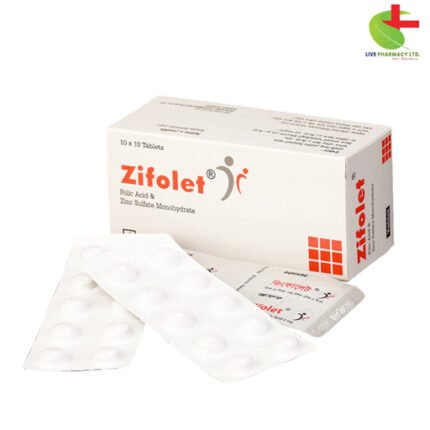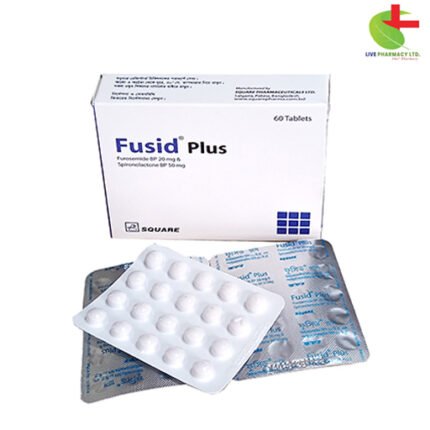Fusid 40
20.00৳ Strip
- Fusid, a potent diuretic medication, addresses fluid retention linked to heart, kidney, and liver diseases.
- It effectively manages hypertension and hypertensive crises.
- With rapid onset and distinctive action on renal tubular function, Fusid ensures fluid balance.
- Available in tablets, syrup, and injections, precise dosing is tailored to individual needs.
- Trust us for safe and effective medication management tailored to your health requirements.
 Brand
Brand
|
Square Pharmaceuticals PLC |
|---|---|
 Generics
Generics
|
Furosemide |
Indications
Fusid serves various purposes, including:
- Addressing fluid retention linked to chronic congestive cardiac failure, both acute and chronic renal failure, nephrotic syndrome, and liver disease.
- Maintaining fluid balance in acute renal failure, pregnancy-related renal failure, and burns.
- Managing hypertension and hypertensive crises.
- Supporting forced diuresis.
Pharmacology
Furosemide, a monosulphonyl diuretic, maintains potency even with low glomerular filtration rates. Its distinctive action on renal tubular function results in significant diuresis. Key features include rapid onset, inhibition of sodium and chloride transport in the ascending limb of the loop of Henle, and independence from acid-base balance changes. Furosemide primarily inhibits electrolyte reabsorption in the thick ascending limb of the loop of Henle, readily absorbed from the gastrointestinal tract and excreted via urine.
Dosage & Administration
- Furosemide 40 mg Tablet: Initial adult dose is 40 mg daily, adjusted as needed. For children, doses range from 0.5-2 mg/kg every 12-24 hours.
- Furosemide 250 mg Tablet: Used for advanced chronic renal failure, dosing may start at 250 mg, adjusted based on response.
- Furosemide Syrup: Initial dose is 40 mg daily, with adjustments for efficacy. Severe cases may require up to 600 mg daily.
- Furosemide Injection: Initial doses range from 20-50 mg intramuscularly or intravenously, with adjustments for efficacy and safety.
Interaction
Combining ACE inhibitors with Fusid therapy may lead to a marked fall in blood pressure. Concurrent use of lithium and Fusid may elevate serum lithium levels. Nephrotoxic antibiotics’ toxicity may increase with concomitant use of potent diuretics like Fusid.
Contraindications
Furosemide is contraindicated in anuria, electrolyte deficiency, pre-comatose states associated with liver cirrhosis, and hypersensitivity to furosemide or sulphonamides.
Side Effects
Diuresis or prolonged therapy may disturb electrolyte and water balance, potentially causing alkalosis and uric acid retention. Hyperglycemia, glycosuria, and acute gout are rare.
Pregnancy & Lactation
Furosemide should be cautiously used during pregnancy (category C) and lactation, with careful monitoring of blood pressure and pulse during rapid diuresis.
Precautions & Warnings
Patients with prostatic hypertrophy or micturition impairment are at increased risk of acute retention. Caution is advised when combining ACE inhibitors with Fusid. Vigilance is necessary when administering nephrotoxic antibiotics with potent diuretics like Fusid.
Overdose Effects
Overdose symptoms primarily involve electrolyte and fluid imbalance, leading to hypovolemia, dehydration, and cardiac arrhythmias. Management involves limiting further absorption and supportive care.
Therapeutic Class
Fusid belongs to the class of loop diuretics.
Storage Conditions
Store Fusid away from light and beyond the expiration date. Keep it out of children’s reach and dispense only with a registered physician’s prescription.













Reviews
There are no reviews yet.